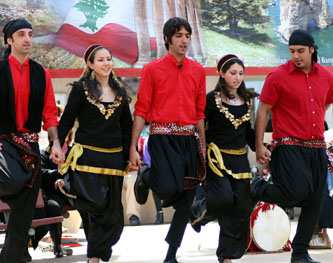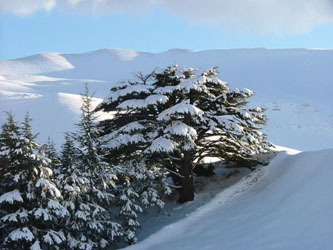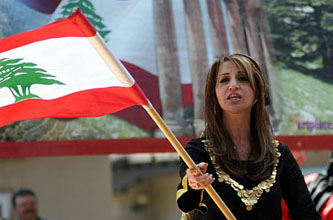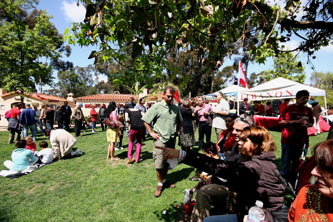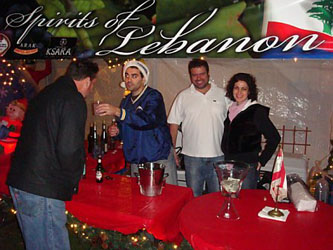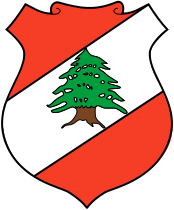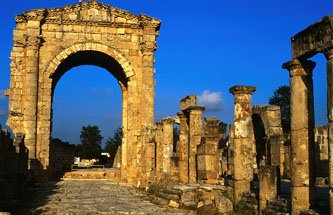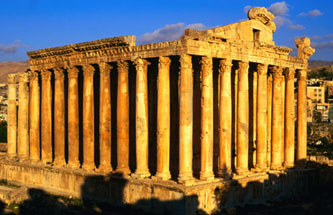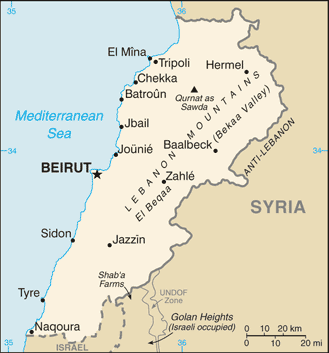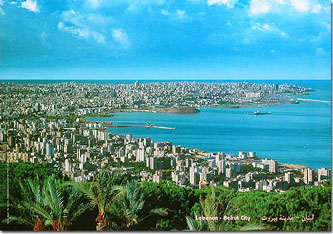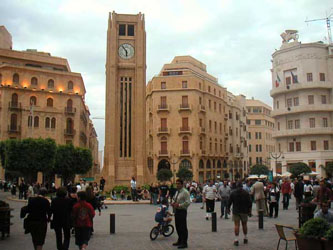| |
|
| |
The House of Lebanon San Diego is one of the newest members of the House of Pacific Relations International Cottages here in Balboa Park . Our mission is to provide a physical site where we can enjoy, promote, and share our Lebanese culture with the community at large.
Hall of Nations Sunday Hosting:
Several times a year the House of Lebanon will host the Hall of Nations from 11 a.m. to 4:00 pm (or occasionally from 12 - 5 p.m.) on a Sunday. We will present a video program about Lebanon and its beauty. We will also have a great selection of Historical Artifact, photos, arts, crafts, books, and literature on display. Samples of Lebanese Pastries and Coffee will also be served during these hosting events. Check the Hall of Nations Hosting Calendar to find out when the House of Lebanon will be hosting |
|
| |
Lawn Program:
Each year, The House of Lebanon hosts their annual Lawn Program. The Entertainment is provided by different folk dance groups every year that will perform Folk Dances in regional native costumes. In addition to folkloric dance, local Lebanese artist will perform tradition song, music and poetry depicting the Lebanese heritage and Culture.
The House of Lebanon serves a wide selection of traditional Lebanese “Meza”. Food will include Hummus, Tabouli, Spinach Pies, Kibbeh, Falafel, stuffed Grape Leaves, Moussakaa, Kafta, Chicken and Lamb Shawarma. In addition to a selection of pastries and drinks to include Baklawa, Sfouf, Namoura, Arabic Lemonade, and Jalab.
Ethnic Food Fair & December Nights:
House of Lebanon participates in the Annual “Ethnic Food Fair” and “December Nights” Festivals. We will serve food similar to the food provided during the Lawn program. We will also participate in the Entertainment program with music, song and traditional Lebanese dance.
At “December Nights” the House of Lebanon participates in the International Spirits Garden selling Lebanese Beer, Arak, and a selection of Lebanese Red and White Wines. |
|
| |
Dance, & Language Classes:
We are in the early stages of setting up an Interactive Children’s Program to teach the Arabic language and Debkeh “Folkloric Dance”. Children of different backgrounds are invited to participate with the various educational activities designed to enrich their understanding of Lebanese culture and Language. Please visit our website www.houseoflebanonsd.org for the upcoming educational programs schedules. |
|
| |
From 1516 to 1918 Lebanon was under the administrative rule and political sovereignty of the Ottoman Empire . In 1920, the territory defined by the present-day boundaries became a state called “Grand –Liban” (Great Lebanon) by decree of General Gouraud, head of the French troops in the Levant . The state remained under French Mandate until November 26,1941. A constitution was adopted on May 25, 1926 establishing a democratic republic with a parliamentary system of government. Effective political independence of the Republic occurred on November 22, 1943 (Independence Day). In 1945 Lebanon became a founding member of the League of Arab states, then of the United Nations. Departure of the foreign troops then on the Republic’s territory was completed on December 31, 1946.
Over the next 30 years, Lebanon became a melting pot with a diverse cultural heritage. The instability in surrounding countries caused Lebanon to experience large waves of immigration from neighboring countries and attracted thousands of skilled laborers, entrepreneurs and intellectuals. The economic force of the Republic has mainly revolved around its entrepreneurs. In addition, Lebanon ’s democratic traditions, attachment to freedom of speech and expression and its educated population enabled the Republic to become the cultural, academic and medical center of the region. |
|
| |
The Lebanese community in San Diego is constantly growing. With the help of our many volunteers, we will be making a great effort to showcase our Lebanese culture with the community at large. Our Goal is to build a Cottage in the International Cottages area of Balboa Park so that we can share our Lebanese heritage, history and traditions with the community for years to come. We are in the early stages of fund raising. Please visit our website: www.houseoflebanonsd.org for the latest updates. |
|
| |
Land Area: 10,400 sq km
Population: 3,925,502 (July 2007 est.)
Capital City: Beirut
Language: Arabic (official), French, English, Armenian
Religion: Muslim 59.7% (Shi'a, Sunni, Druze, Isma'ilite, Alawite or Nusayri), Christian 39% (Maronite Catholic, Greek Orthodox, Melkite Catholic, Armenian Orthodox, Syrian Catholic, Armenian Catholic, Syrian Orthodox, Roman Catholic, Chaldean, Assyrian, Copt, Protestant), other 1.3%
note: 17 religious sects recognized
Form of Government: republic
Economy:The 1975-90 civil war seriously damaged Lebanon's economic infrastructure, cut national output by half, and all but ended Lebanon's position as a Middle Eastern entrepot and banking hub. In the years since, Lebanon has rebuilt much of its war-torn physical and financial infrastructure by borrowing heavily - mostly from domestic banks. In an attempt to reduce the ballooning national debt, the Rafiq HARIRI government began an austerity program, reining in government expenditures, increasing revenue collection, and privatizing state enterprises, but economic and financial reform initiatives stalled and public debt continued to grow despite receipt of more than $2 billion in bilateral assistance at the Paris II Donors Conference. The Israeli-Hizballah conflict in July-August 2006 caused an estimated $3.6 billion in infrastructure damage, and prompted international donors to pledge nearly $1 billion in recovery and reconstruction assistance. Donors met again in January 2007 and pledged over $7.5 billion to Lebanon for development projects and budget support, conditioned on progress on Beirut's fiscal reform and privatization program. Internal Lebanese political tension continues to hamper economic activity, particularly in the tourism and retail sectors.
Export: authentic jewelry, inorganic chemicals, miscellaneous consumer goods, fruit and vegetables, tobacco, construction minerals, electric power machinery and switchgear, textile fibers, paper
Source: The World Factbook - Lebanon |
|
|

